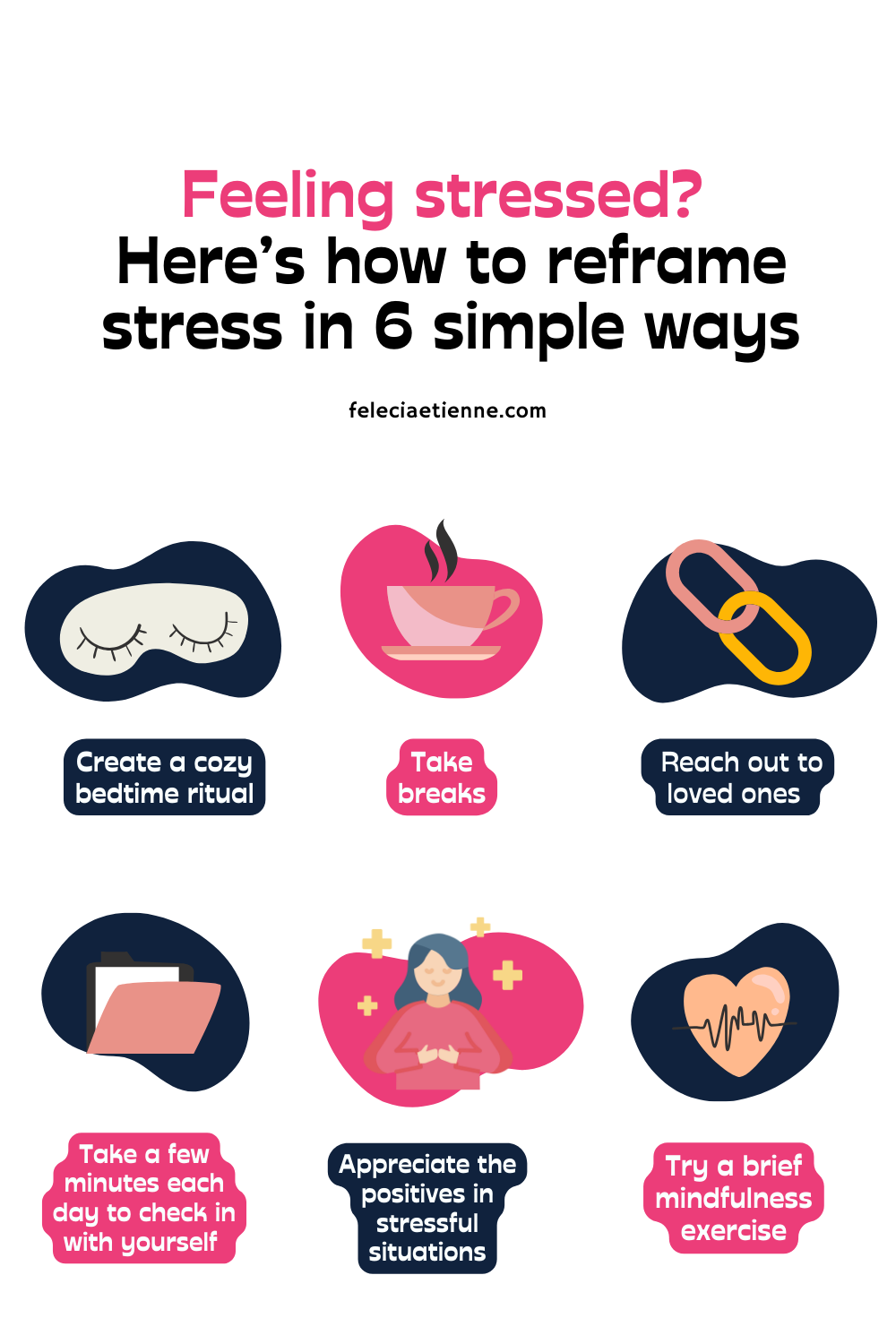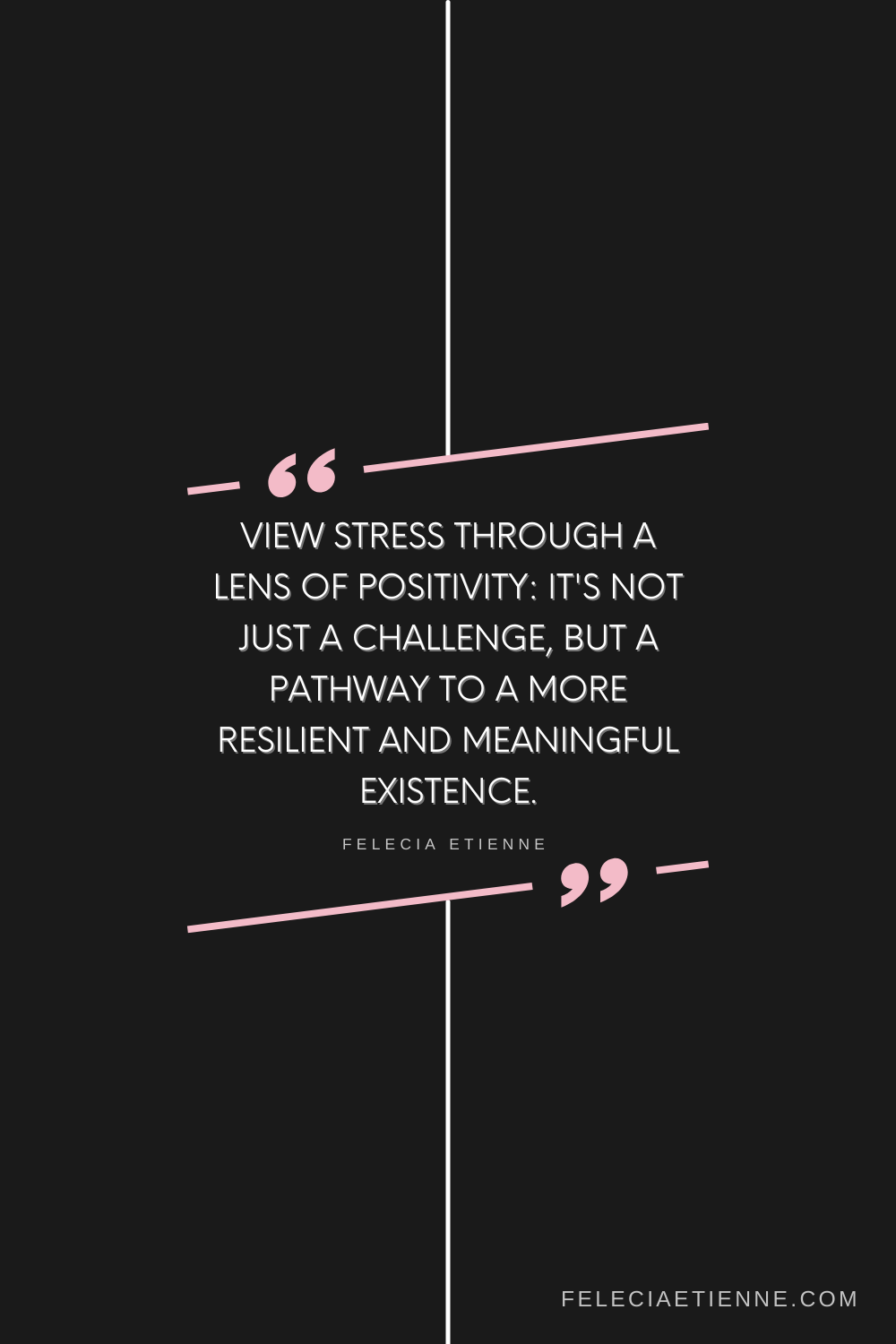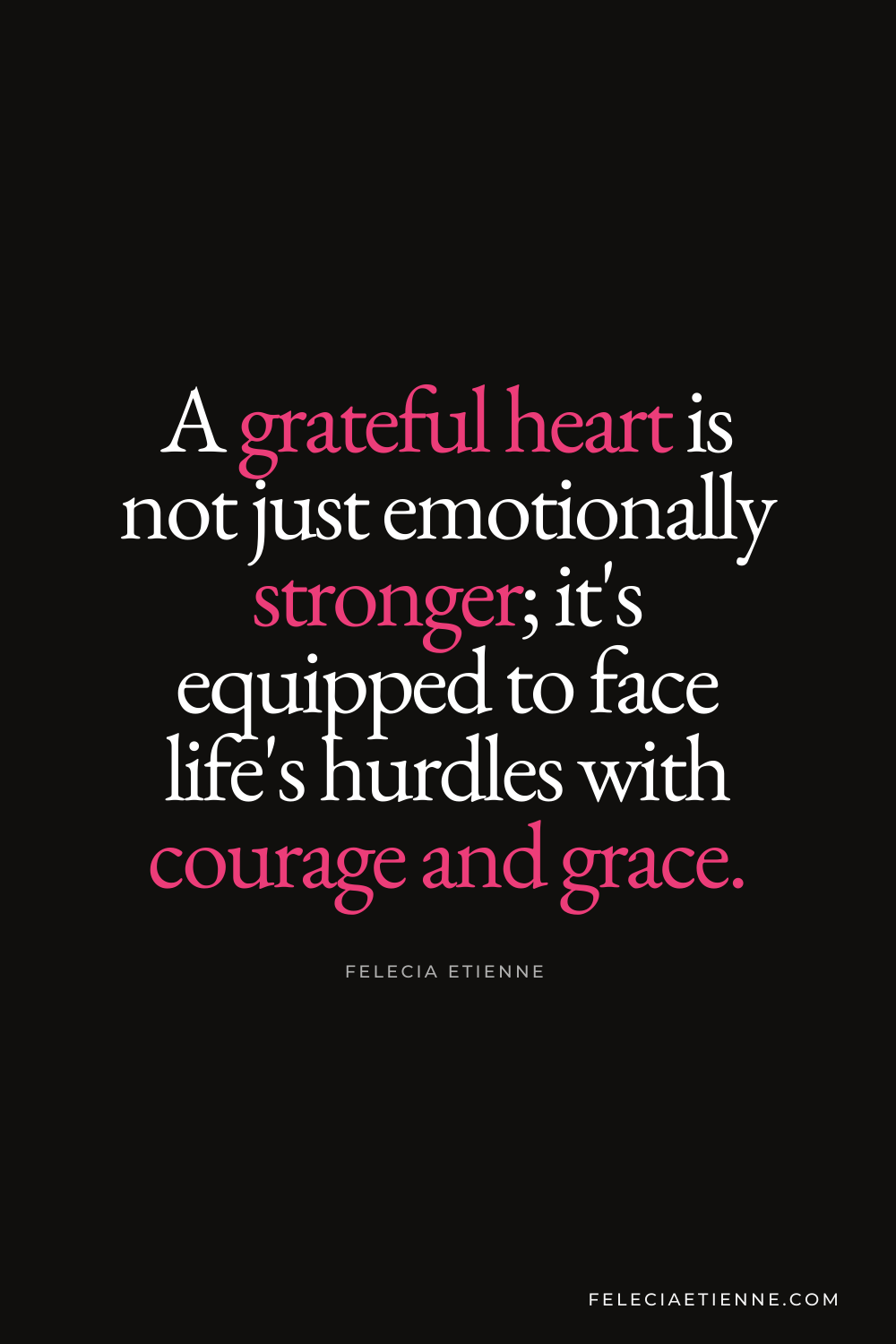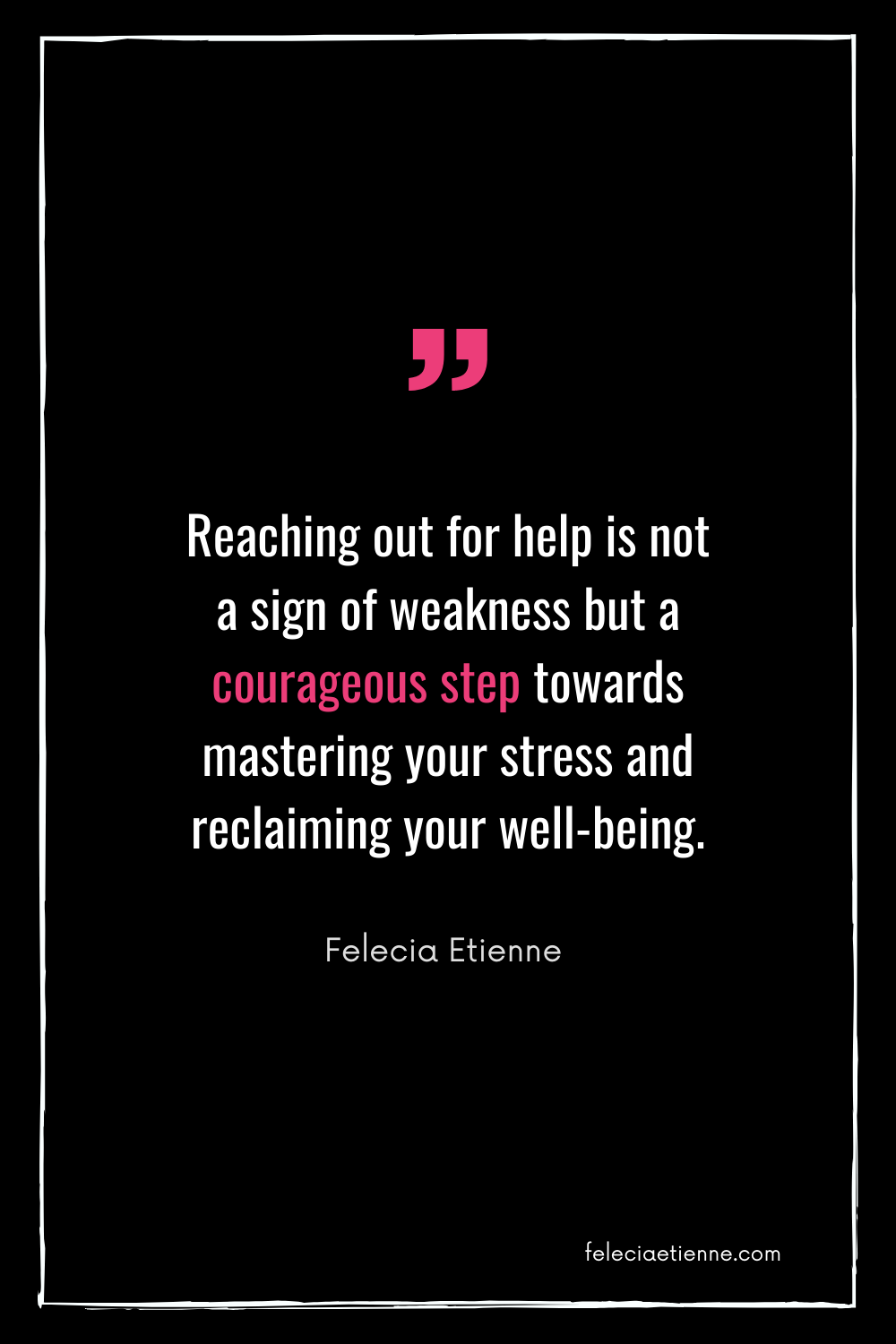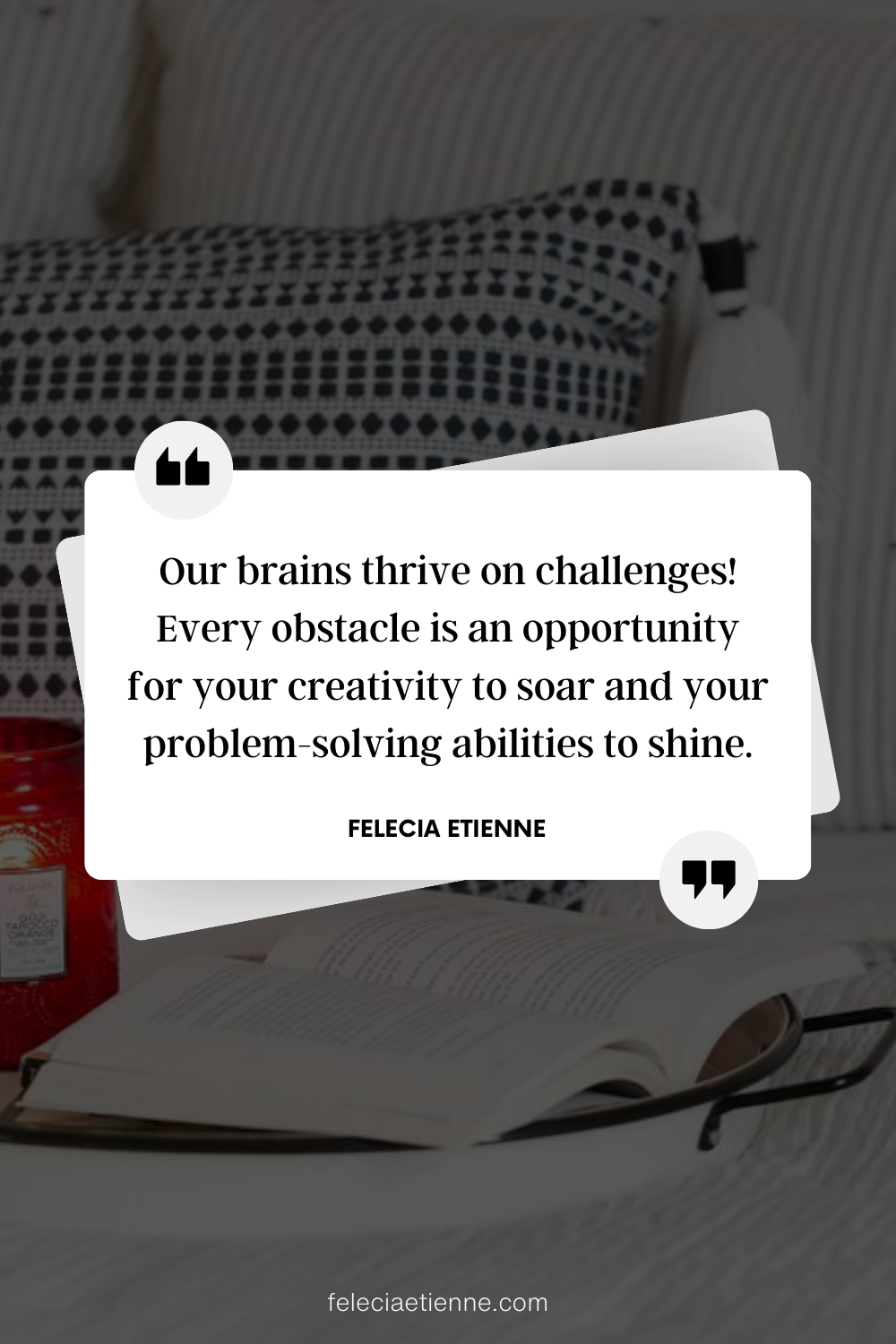10 Proven Scientific Strategies to Transform Stress into Personal Growth Opportunities
Stress is a universal experience that affects us all at some point. Whether it's about work, relationships, or just life-throwing curveballs, stress can pop up in various ways and mess with our mental and physical health. However, what if I told you that stress doesn't always have to be negative? There are proven scientific strategies backed by research showing how stress can be transformed into personal growth opportunities. Yes, you read that right – stress can be harnessed to fuel personal development and lead us toward a better version of ourselves. In this blog post, we'll dive into 10 science-backed ways to flip stress from being a roadblock into a stepping stone for growth and resilience. So sit back and get ready to learn valuable tips on turning your perceived stresses into stepping stones toward reaching your full potential.
Reframe your mindset: Redefining Stress As Your Personal Growth Trainer
“Stress is not the enemy; it’s a coach pushing you towards growth.”
When we think of stress, our immediate reaction is often negative. We view it as an obstacle that prevents us from achieving our goals or enjoying life. However, studies have shown that stress can actually be a catalyst for personal growth and development.
Imagine if you saw stress not as your foe but as your coach, cheering you on from the sidelines. Changing your viewpoint can really switch up how you handle stress, turning obstacles into chances to grow. Just a simple twist in your mindset can revolutionize your approach to stressful situations, making them less daunting and more manageable.
Recognize the signs: Understanding How Stress Manifests In Your Body
Stress not only affects you mentally, but it also has physical effects on your body. It's important to recognize the signs so that you can address them before they escalate into more serious health issues.
A New Perspective on Stress
Allow me to offer a new perspective on stress that could alter your perception. Dr. Kelly McGonigal, a renowned health psychologist, reveals an intriguing fact: when viewed positively, stress can actually rewire our body's response, enhancing brain function, boosting concentration, and improving productivity. It's akin to discovering a treasure where you once feared a monster.
The Science of Stress and Growth
Think of it this way: facing stress with a mindset geared towards learning is like hitting the gym for your resilient muscles. Research in the Journal of Personality and Social Psychology shows that dealing with manageable stress levels primes us for future challenges. This isn't merely about surviving; it's about thriving and accumulating emotional strength, which feeds into our happiness and life satisfaction.
Embracing the Challenge Mindset
Now, let's dive into the 'challenge mindset. Imagine perceiving each stressor not as an insurmountable threat but as an achievable obstacle. This empowering perspective gives you the courage and confidence needed to confront challenges head-on. A study from the University of Wisconsin-Madison supports this, showing that those who see stress as beneficial are less anxious and more confident in stressful situations.
An Invitation to Shift Your Perspective
Here's an idea: How about we change the way we look at stress? Let's view it as an essential component of our journey toward growth, a series of educational moments that counteract the negative and unlock numerous positive benefits. This isn’t just feel-good talk; it's backed by science. It's a powerful way to build resilience and personal growth and make life richer.
Set Boundaries
“Your well-being is the foundation of your success; protect it with firm boundaries.”
The Breaking Point: Recognizing the Load
Ever felt like you're just about to hit your breaking point? Swamped with work and life stuff? Yeah, I've been there, and let me tell you, it's no picnic. But here's the thing—I found something that really turned things around for me. It's all about setting healthy boundaries. Sounds simple, right?
From my own experience, let me tell you how crucial it was for me to set these boundaries. It's all about making a space for yourself where you can breathe, grow, and really flourish without sacrificing your well-being. This isn't just about turning things down; it’s about taking back your power and shaping a life that's satisfying and well-balanced. Trust me, drawing those lines is a difference-maker. It can really boost your confidence and help you handle stress way better.
RELATED ARTICLE: Escaping the Overwhelm and Stress Vortex: 11 Steps to Regain Control
The Science of Boundaries and Mental Health
The American Psychological Association highlights a critical perspective that reducing work hours and commitments is not just beneficial—it's vital for our mental well-being. The dangers of chronic stress extend far beyond mere feelings of being overwhelmed; they pave a direct path to serious health issues, including anxiety, depression, and heart disease. My own experience of taking on too much, only to find myself utterly drained, mirrors this fact. Yet, learning to decline excessive tasks was a game-changer, dramatically reducing my stress levels and the associated health risks.
Expert Views on Work-Life Balance
Mental health experts all agree that putting your well-being first and finding that sweet spot between work and life is super important. They've seen how setting clear boundaries can really make a difference, like boosting job satisfaction, happiness, and overall health. There's a ton of support for this idea, including a study in the Journal of Health Psychology that shows just how big of a deal boundary-setting is for handling stress, loving your job more, and enjoying life to the fullest.
Redefining Success: The Path to Well-Being
Setting boundaries isn't about holding yourself back; it's actually about creating the space for a happier, more balanced life. I've been through this transformation myself, and let me tell you, I'm not the only one. Many others have chosen to redefine success by prioritizing their well-being. By doing so, we're not sacrificing our health; we're embracing a scientifically proven strategy for a more fulfilling and healthier life.
Setting Boundaries, Setting Ourselves Free
When you take the time to set clear boundaries, you youare giving yourself permission to say no to things that don't align with your values and priorities. This can be a tough task for many of us, especially if we're used to saying yes to everything and everyone. But by doing so, we're taking back control of our lives and ensuring that our time and energy are spent on what truly matters.
The Benefits of Boundary-Setting
Let's redefine success by prioritizing our mental and physical health, guided by scientific evidence and expert advice. Embracing the power of setting boundaries not only reduces stress but also enhances overall well-being. It allows us to focus on self-care and identify what truly matters in our lives, fostering happiness and fulfillment. Furthermore, establishing clear boundaries improves relationships through open communication and mutual understanding, ensuring others respect our needs. Together, we can embrace a brighter, more balanced tomorrow.
Find purpose in stress
“View stress through a lens of positivity: it’s not just a challenge, but a pathway to a more resilient and meaningful existence.”
Redefining Stress: A Pathway to Growth
Seeing stress in a different light, as an opportunity for personal growth rather than merely a burden, can significantly alter how you respond to challenging situations. Research in positive psychology supports this perspective, suggesting that stress when viewed positively, can actually enhance our performance and well-being.
The Concept of Stress Inoculation
One key concept is the idea of "stress inoculation," where experiencing manageable levels of stress can strengthen our resilience to future stressors, much like a vaccine builds immunity against diseases. This process encourages personal development by pushing individuals to adapt and find creative solutions to problems.
The Biological Upside of Stress
Moreover, stress triggers the release of certain hormones, like adrenaline and cortisol, which, in moderate amounts, can increase our focus, energy, and decision-making capabilities. It's when these levels become chronically elevated that stress becomes harmful. Learning to manage stress through healthy coping mechanisms, such as exercise, meditation, and positive social interactions, can help keep these hormone levels in a beneficial range.
Embracing Stress for a Meaningful Life
Additionally, embracing stress as a part of life's challenges can lead to a more meaningful existence. Research by Dr. Kelly McGonigal has shown that individuals who view their stress response as helpful, not debilitating, experience less anxiety and report fewer health problems. They're also more likely to say they lead meaningful lives because the same activities that cause stress (like meaningful work and caregiving) also bring joy and fulfillment.
Turning Stress into a Stepping Stone
In light of this, when facing stress, ask yourself what the situation is teaching you. Can it make you stronger, more compassionate, or more skilled? How can this stressor serve as a stepping stone to personal growth? By finding purpose in stress and viewing it as a catalyst for development, we not only mitigate its negative effects but also enrich our lives with greater resilience and meaning.
The Silver Lining of Stress
So, if you start seeing stress differently and use it to grow, you can turn what feels overwhelming into something pretty enriching. Think of stress as a chance to get tougher and build a life that’s really satisfying and full of meaning. Next time you're stressed, remember it’s not all bad – it’s actually a chance to learn and evolve.
Cultivate gratitude
“A grateful heart is not just emotionally stronger; it’s equipped to face life’s hurdles with courage and grace.”
Unlocking the Power of Gratitude
Gratitude is like a secret key to feeling good, both mentally and physically. Research shows that there's a lot more to being grateful than just saying thanks. It's about turning feelings like envy, resentment, and frustration into positive vibes like optimism and health. Gratitude can really change the game, making us happier, boosting our relationships, and even helping to keep depression and negative thoughts at bay. Just by recognizing the good stuff in our lives and enjoying the little things, we can open up a whole new world of happiness and strength.
The Science of Gratitude
Imagine transforming your brain with a simple act of gratitude. Kristin Francis, MD, a distinguished psychiatrist at the Huntsman Mental Health Institute, uncovers the magic behind gratitude. It's like a natural boost for your brain, releasing dopamine and serotonin—those feel-good neurotransmitters that instantly lift your mood and wrap you in feelings of pleasure, happiness, and well-being.
Supporting this, studies by esteemed researchers like Robert A. Emmons and Michael E. McCullough highlight the significant impact gratitude can have on our mental health. Their work reveals that individuals who practice gratitude, noting their blessings, experience heightened levels of optimism and life satisfaction compared to those who dwell on grievances or the mundanity of existence.
Just think about it: By embracing gratitude in your everyday life, you're not just saying thanks; you're initiating a beautiful change within your brain. It's a powerful yet effortless step towards a happier you, demonstrating how acknowledging our blessings can profoundly influence our emotional well-being and overall life satisfaction.
RELATED ARTICLE: The Power of Delayed Gratification: Unleashing Your Productivity Potential with the 10-Minute Rule
Beyond the Mind: Physical Wellness Through Gratitude
But the magic of gratitude doesn't stop with the mind. Envision your body expressing thanks as discomfort fades and health flourishes, all from the simple act of counting your blessings. This was confirmed in a pivotal study published in "Personality and Individual Differences" in 2012, which highlighted a direct correlation between gratitude and better physical health.
Building Resilience in Life's Storms
Through the lens of gratitude, even life's storms become more manageable. It's about shifting our focus to the positives and cultivating inner strength that aids in navigating stress and rebounding from adversity with poise. This resilience is supported by research from the University of Utah, showing that grateful individuals experience less stress and inflammation.
Weaving Gratitude into Daily Life
Let's integrate gratitude into our daily routines, enhancing our mental and physical well-being. It's a journey of recognizing the beauty in your life and empowering yourself to overcome stress with a thankful heart. After all, adopting a grateful stance toward life enriches you, making you better, stronger, and more resilient in the face of challenges.
A Grateful Heart is a Strong Heart
Being grateful does way more than just make you feel good; it actually strengthens you, helping you tackle life's challenges with bravery and grace. When you focus on the good stuff, you're not only making your life better, but you're also encouraging others to see things the same way. Let gratitude be your guide through life, turning obstacles into chances to grow and find true happiness.
Seek support
“Reaching out for help is not a sign of weakness, but a courageous step towards mastering your stress and reclaiming your well-being.”
Unlocking the Power of Support for Emotional Well-Being
Establishing and maintaining strong, supportive relationships is not just beneficial; it's crucial for emotional well-being and stress management. Keep in mind that asking for help shows strength, not weakness, and can really help lower your overall stress levels.
The Science Behind Seeking Support
Facing the heavy load of stress can feel like a solo journey, but I’m here to remind you that you're far from alone. Let me share a bit of wisdom that has guided me through my own battles with stress. Picture this: simply by connecting with others, you activate your body’s innate ability to find serenity, drastically cutting down stress hormones like cortisol. This isn’t just talk; it’s a science-backed reminder that when we join forces, we tap into our body's natural state of calm. So, when stress seems insurmountable, remember reaching out isn’t a sign of weakness—it's your secret weapon.
Real-Life Benefits of Connection
You know, what I've found out—and I'm not alone here—is that just chatting with someone who gets it can totally change the game. Whether it's opening up to a friend you trust or getting some advice from a coach, those moments when we connect really do more than just help us deal with stress. They actually give us the power to handle it with a bit of grace.
Building Your Support Network
Psychologists stress the importance of having a strong support network. It's more than just beneficial—it's essential. It helps you develop resilience, enabling you to bounce back stronger from life's challenges. Building and nurturing these supportive relationships is a cornerstone of emotional well-being and effective stress management.
Taking the First Step
So, if you're feeling overwhelmed, remember that reaching out is a sign of strength. It's a step towards taking control of your stress levels and, ultimately, your life. Let's embrace the power of support together and transform our stress into a path for growth.
Practice mindfulness
“Mindfulness is not just a momentary pause; it’s a gateway to resilience, melting away anxiety.”
A Journey Towards Calm and Clarity
Imagine a world where stress no longer controls your life, where calm and clarity replace the constant noise of anxiety. This isn't just a dream—it's a reality that mindfulness techniques like meditation and deep breathing can offer. Scientific studies, including groundbreaking research published in "Psychiatry Research: Neuroimaging," have illuminated the path to achieving this state.
Transforming Your Brain with Mindfulness
After just 8 weeks of a mindfulness-based stress reduction program, participants experienced profound changes in their brain, enhancing memory, empathy, and a sense of self, while significantly reducing stress.
Personal Insight: The Transformative Power of Mindfulness
Let me tell you something from my own experience. Embracing mindfulness doesn't just alter your brain's neural pathways; it transforms your response to life's challenges, making you more resilient. Deep breathing exercises, for instance, are not just a momentary pause but a gateway to activating your body's relaxation response—evidenced by a decrease in heart rate and blood pressure, melting away anxiety.
Physical and Mental Health Benefits of Mindfulness
But it's not just about the physical benefits. Mindfulness anchors you in the present, allowing you to let go of past regrets and future worries. This focus on the "now" opens the door to improved mental health and well-being. Dr. Jon Kabat-Zinn, the pioneer behind the Mindfulness-Based Stress Reduction program, has shown us that mindfulness is more than a practice—it's a journey to reclaiming peace and joy in our lives.
Embrace Mindfulness for a Healthier, Happier You
I urge you to consider this not just as information but as a call to action. Imagine the empowerment of controlling your stress rather than being at its mercy. This is not just about managing symptoms of anxiety, depression, or chronic pain; it's about fundamentally changing how you engage with the world. With mindfulness, you're not just surviving; you're thriving.
related article: Control Your Mind - Fear it or Control it... You Get in Life What You Create
Learn from failure
“Our brains thrive on challenges! Every obstacle is an opportunity for our creativity to soar and our problem-solving abilities to shine.”
Embracing Stressful Situations: A Gateway to Growth
Stressful times, filled with failures and setbacks, aren't just rough patches - they're actually huge chances to grow and learn. This isn't just me talking; tons of psychology studies, especially on resilience and post-traumatic growth after tough times, show that getting over hurdles can really enhance your confidence in yourself.
The Power of a Growth Mindset
Positive psychology experts, like Dr. Martin Seligman, advocate for the growth mindset, a concept developed by Carol Dweck. This mindset frames failures as stepping stones rather than barriers, crucial for personal development and achievement.
Neuroplasticity: Learning Shapes the Brain
Neuroscience shows us something pretty amazing: when we deal with stress and failures, it actually changes our brains, making us better at solving problems and getting those creative juices flowing. This demonstrates the brain's adaptability and the importance of engaging with challenging experiences.
Strategies for Learning from Setbacks
Incorporating reflection and learning strategies, such as mindfulness and journaling, can amplify personal and professional growth. These techniques enable individuals to process experiences, learn from mistakes, and build resilience.
Continuous Improvement: Turning Setbacks into Stepping Stones
Adopting a proactive approach to mistakes and viewing them as opportunities for improvement aligns with scientific research on personal excellence and well-being. This mindset not only fosters resilience but also encourages continuous personal development. When you start seeing slip-ups as chances to level up, you're not just bouncing back—you're building a resilient, ever-evolving version of yourself. Let's turn those "oops" moments into "aha!" ones together, transforming each setback into a setup for your next big win. Remember, every misstep is just another opportunity to grow stronger and shine brighter.
Take breaks
“Take a step back and recharge. It’s in those quiet moments of pause that your brightest ideas and solutions come to life.”
Navigating the Risks of a Fast-Paced Society
In our fast-paced society, it's all too easy to find ourselves overworked and on the brink of burnout. The relentless pressure to perform and stay connected 24/7, coupled with the constant push to excel and the need to be always on, can chip away at our mental and physical well-being.
The Power of Taking Breaks
“Taking breaks isn’t slacking—it’s your secret weapon for sustainable success and a spark of creativity.”
Our brains are powerful tools, but they need time to recharge. Taking breaks throughout the day helps us refocus and re-energize, allowing us to work more efficiently and effectively. This is especially important for those who work in high-stress environments or have demanding schedules. To combat this, it's crucial to incorporate regular breaks throughout the day. Scientific research supports the idea that taking short breaks can significantly enhance productivity and creativity.
A study from the University of Illinois at Urbana-Champaign found that brief diversions from a task can dramatically improve one's ability to focus on that task for prolonged periods. Not only do breaks give our minds a rest, but they also allow us to step back from our work and see things from a different perspective. Oftentimes, when we are too close to a problem or task, it can be hard to come up with new ideas or solutions. Taking a break allows us to gain distance and clarity, leading to fresh insights and breakthroughs.
Rest for Mental Well-being
Additionally, experts in occupational health emphasize the importance of rest for mental well-being. According to the American Psychological Association, says taking breaks can reduce or prevent stress, helping to maintain performance throughout the day and reducing the likelihood of burnout. These breaks allow your mind and body to rest, recharge, and refocus, which is essential for sustaining high levels of performance.
Creative Thinking and Problem-Solving
Neuroscientists have found that taking breaks isn't just about resting—it's a gateway to enhanced creativity and problem-solving. When we step away from our work, even briefly, we give our brains a chance to switch gears. We move from intense focus to a broader, more diffuse mode of thinking. It's in this relaxed state that the magic happens. Out of the blue, bam! Creative ideas and aha moments just pop up out of nowhere. Switching from being super focused to letting your mind wander a bit is key to sparking those creative ideas and finding solutions that just don't come when you're trying too hard to concentrate.
Integrating Breaks for Sustained Success
Therefore, to maintain optimum productivity and safeguard your mental and physical health, integrating regular breaks into your daily routine is essential. This could mean taking a short walk, practicing mindfulness, or just stepping away from your work environment for a few minutes. By allowing yourself to recharge and refocus, you're not just preventing burnout; you're also setting the stage for sustained success and well-being.
Prioritize sleep
“To prioritize sleep is to prioritize well-being. It’s about discipline, setting boundaries, and recognizing sleep as a non-negotiable aspect of high-performance.”
The Underrated Power of Sleep
Sleep is often overlooked and undervalued amidst our busy schedules, endless to-do lists, and constant distractions. Many people view sleep as a luxury rather than a necessity. Imagine wrapping up a long day, feeling the weight of the world on your shoulders. The secret to managing this stress? Believe it or not, it's as simple as a good night's sleep. The truth is that getting enough quality sleep is crucial for our physical, emotional, and mental well-being.
Your Bed: A Sanctuary of Rest
Picture your bed as a sanctuary, a place where each night offers the chance to reset, recharge, and rejuvenate both body and mind. It's not just about closing your eyes; it's about opening yourself up to the power of rest.
The Science of Sleep
The scientific research makes one thing crystal clear: sleep isn't just nice to have; it's a must-have. The National Sleep Foundation isn't just throwing numbers out there when they say we need 7-9 hours of sleep a night. There's tons of research backing that up, showing we need that much shut-eye for our best performance and to keep our emotions in check. But here's the kicker: even with all this evidence, the Centers for Disease Control and Prevention (CDC) tells us about 35% of adults are skimping on sleep, getting less than what's recommended. It really highlights this big gap between what we know is good for us and what we're actually doing. It just goes to show how important it is to make sleep a top priority for our overall well-being.
Sleep: The Ultimate Act of Self-Care
Think about it: sleep is the ultimate act of self-care. It's a time when your body repairs itself, your memories find their place, and your emotions get a chance to reset. I've seen firsthand how skimping on sleep can leave you tangled in stress, your cognitive functions foggy, and your emotions on edge.
The Ripple Effects of Poor Sleep
NHLBI-funded research spells it out: poor sleep is a recipe for stress, diminished mental function, and emotional turmoil. It's as if our bodies have a built-in stress response, with sleep being the off switch. Moreover, poor sleep has ripple effects on all aspects of our lives, impacting our relationships, work performance, and even physical health. Not getting enough sleep could be more risky than you think - it's been tied to a higher chance of diabetes, obesity, and heart disease. And yet, we often overlook this powerful tool, ignoring how essential it is for our overall well-being.
Prioritizing Sleep for Well-being
How do you make sleep a priority in a world that celebrates the hustle and never hitting pause? It's about embracing discipline and setting your own limits. Let's kickstart a bedtime routine that works for you, stick to a sleep schedule that feels like second nature, and dial down the screen time as the night draws in. Transform your bedroom into a haven of tranquility, a place where rest takes precedence. Remember, valuing sleep isn’t indulgence—it’s a cornerstone of self-care that fuels your overall well-being.
Here’s the deal: making sleep a non-negotiable part of your life is a game-changer. It’s not just about catching Zs; it’s about reclaiming your energy, sharpening your mind, and setting yourself up for success day after day. So, let’s challenge the norm together and place rest right up there with our top priorities. Because when we’re well-rested, we’re unstoppable.
Conclusion
In conclusion, stress is a natural part of life, and it's inevitable that we will all experience it at some point. However, by implementing these 10 proven scientific strategies, we can transform stress from something negative into an opportunity for personal growth. By reframing our mindset, practicing self-care, setting boundaries, finding purpose in stress, cultivating gratitude, seeking support, practicing mindfulness, learning from failure, taking breaks, and prioritizing sleep, we can better manage and even thrive under stressful situations.
It's important to remember that self-care is not selfish, and setting boundaries is necessary for maintaining our mental and emotional well-being. Finding purpose in stress allows us to stay motivated and learn valuable lessons from challenging situations.
Cultivating gratitude helps us to appreciate the good in our lives even when things seem tough. Seeking support and practicing mindfulness allows us to acknowledge our emotions and handle them effectively. Learning from failure teaches us resilience and growth. Taking breaks and prioritizing sleep are essential for recharging ourselves physically and mentally.
So why wait? Book your complimentary high-performance strategy session today and take the first step toward transforming your stress into personal growth! Don't let stress hold you back any longer - embrace these strategies and become the best version of yourself. Remember, with the right tools and mindset, anything is possible!
Click the freebie below to grab your free productivity powerpack:
Get Your Free High-Performance Assessment here!
Sign up to receive your Free Level-Up & Thrive Assessment.



